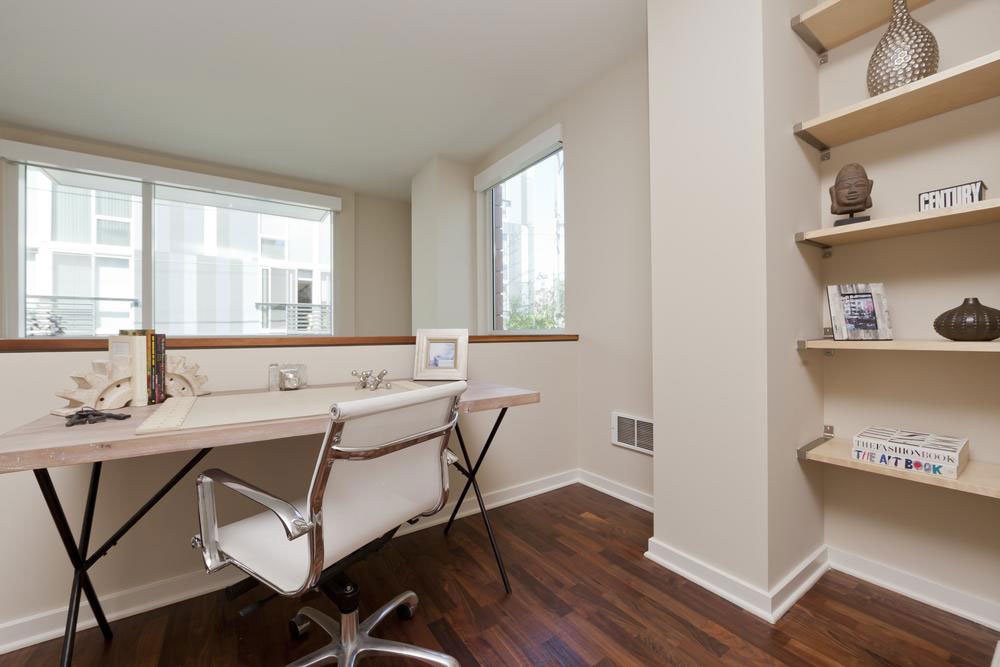
10 common mistakes to avoid when buying furniture
No matter how spacious and good-looking, a house isn’t habitable until furnished. Buying the right furniture pieces involves considering various factors, including one’s requirements, preferences, budget, and color coordination with the walls. In other words, shopping for furniture requires perfectly integrating aesthetics and utility. Besides, it is a significant investment over and above the expenses incurred in buying a home. So, here are some mistakes to avoid while buying furniture.
Not measuring the space
The most common mistake is overlooking the available space. When buying furniture, homeowners must first measure the room and estimate the dimensions of tables and chairs it can accommodate. One must also measure the length and the horizontal and diagonal width of the stairways, passageways, and doorways to ensure the furniture can easily pass through while being moved to specific areas in the house. As a thumb rule, furniture pieces should be at least four inches less than the length and the horizontal and diagonal width of the doorway or passageway.
Not understanding one’s requirements
Any piece of furniture that has little or no use will only eat up space and make the room appear smaller. Thus, homeowners must understand their requirements before heading to the store. For example, a king-size bed is unnecessary if a bedroom has only one occupant. In such cases, a small but comfortable single bed would be the best bet. Similarly, a compact round or oval table would be a better option than a huge family dining table if a household has only one or two members and receives visitors infrequently.
Not setting a definite budget range
While it may be tempting to go with the flow while buying furniture, individuals must set a tight budget range or spending limit based on their needs analysis, financial status, and number of earning members in the family. One should also consider the mode of payment, such as cash, online payment gateways, or flexible credit cards. Doing so helps plan other expenditures. Furniture can be costly depending on its material, so not setting a budget is one of the biggest mistakes to avoid.
Compromising on quality for price
Although money is an essential criterion while shopping for furniture, compromising quality can cause one to incur more expenditures in the long run in terms of repairs and maintenance. Individuals must research the options available at different brands and stores and choose something that will last long yet fall within their budget. Factors like the furniture’s durability and resistance to extreme weather conditions should be considered, especially when shortlisting patio sets.
Overlooking the importance of esthetics
While utility is an indispensable factor when selecting furniture, one should not overlook esthetics and style. The best furniture pieces strike a balance between visual appeal and utility. One may consider an exciting color contrast of dark furniture against light-colored walls or vice versa. Individuals should also consider the level of natural and artificial light in the room. Although bright light can make colored furniture appear vibrant, too much illumination can cause it to look too overbearing. Therefore, the color and positioning of furniture pieces in a home should be determined by the amount of light penetrating a particular area.
Following furniture trends blindly
Like every other product or service, specific furniture styles and designs suddenly gain popularity. However, their fame is short-lived, and they are quickly replaced. Hence, jumping on the bandwagon without researching well can cause one to buy furniture that is ill-fitted, uncomfortable, or something that does not complement the design of the rest of the home. One should take their time and shop around to avoid disappointment later.
Engaging in impulse buying
Impulse buying is when a person buys a product on the spot because it looks elegant or is available at a great price. Buying furniture impulsively can lead to a host of rather “expensive” repercussions, including poor fitting and problems with design. Therefore, customers must resist their temptation and think before deciding. One must evaluate the furniture’s price, style, utility, and measurements and then head home to gauge whether it fits their budget, requirements, and the rest of the home’s design.
Not testing the furniture
Like a test drive is essential before choosing a vehicle, physically testing furniture is an integral part of the shopping process. Individuals should try the couches and chairs at the store, ensuring they are sturdy and comfortable and can be used in their homes. One may even lie on the sofa or bed to gauge comfort levels if seriously planning to buy. Drawers and doors of wardrobes and side tables should be opened and shut to ensure they do not creak and are easy to handle.
Ignoring opinions or asking for too many
Seeking opinions about the design, fitting, and sturdiness of shortlisted furniture pieces before buying helps gain different perspectives and ensures one makes a well-informed decision. However, asking too many people for their views can leave customers confused and undecided. Therefore, it is essential to seek the opinions of a few, such as close family members and friends or professionals like interior decorators.
Not reading online and offline reviews
Checking online reviews of companies and brands can help one understand the personal experiences of different buyers as well as the furniture pieces’ quality, prices, and durability. Word of mouth on brands by friends, family members, and neighbors can also help one shortlist a reliable and reputed furniture company or brand.
Buying furniture can be a rewarding experience if individuals understand their requirements, set a budget range, and research the available options. Quality furniture is usually a long-term investment that lasts for years or even decades. Therefore, one must always take their time and avoid deciding in haste.







